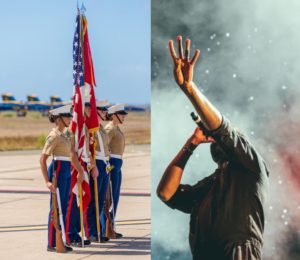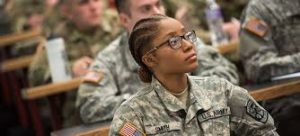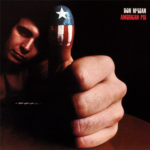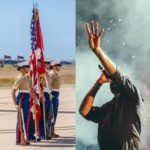
I just returned from New England where I led a college retreat. The students were from New Hampshire, Massachusetts, Connecticut, New York, New Jersey, and Rhode Island. They were normal college fare: loud, energetic, fun, and ate junk food. Yet they shared two things that set them apart from other college students. 1) They were all followers of Jesus; 2) They were ROTC cadets. Upon graduation, all will become leaders (officers) in various branches of our Armed Forces.
Leadership conferences are as common as houseflies. What made this one different? These future leaders were being trained to “Lead those you lead like Christ led those He led.” This training will make these Christian officers exceptional from others who simply wear the rank or the title.
TRAINED TO LEAD

The difference between ROTC leaders and young church worship leaders is training. The ROTCers learn leadership skills and regularly drill so that when they are thrust into the “real military world” they know what to do and what is expected.
Not so for many church worship leaders. Most are volunteer musicians who play and sing well yet have little if any training in leading from the platform. Many are thrust onto stage only knowing the latest songs and production hardware. The paradox is the church gives them a title that congregants quickly ascertain as inaccurate: Not “lead singer” or “leader of the band” – but worship leader.
“I HAVE NO IDEA WHAT TO DO OR SAY!”

Many worship leaders tell me they have no idea what to say or do on the platform outside of performing the music. At the ROTC conference, I was approached by a young, active duty Navy chaplain. He pastors sailors and families in his base chapel and shared his dilemma: “My worship leaders don’t know what to do or say on the platform. They think leading worship is performing 4 or 5 songs and then they sit down.” He asked me for advice. Here’s what I shared.
Training Solution 1: Get together. Go over the song lyrics with the worship leader and find a scriptural reference to have the congregation recite in unison prior to singing the song. This ties the song to the living and active word of God (Isaiah 55:11) – and the worship leader isn’t left to think of something clever to ramble about. Also, congregants get to hear their own voices.
Training Solution 2: Follow good examples. Watch a worship leader on YouTube that is effective in speaking before or after a song. Talk about what makes what they say effective. Many of us have stood through endless rambling about “what God is teaching me this week.” AKA the “coffee cue.” Most congregants come to church after surviving their own trials in the week and don’t care to listen to a musician rambling through a personal story that is more appropriate in a small group setting. Stay with the scriptures. Pastor the people.
Training Solution 3: Talking takes rehearsal. Have the worship leader share their personal story of coming to know Christ with the congregation – without hiding behind an instrument. This is a challenge for introverted worship leaders. Have them share it first in a staff meeting or small group. The extroverted and ADD types will have to discipline themselves to five minutes and to topically stay in their lane.
There is a difference between concert performing and worship leading. Whether pastors or musicians want to admit it, there is a pastoral side to leading congregants in musical worship which differentiates leading from performing. Worship leaders need to lead – not just perform songs. Congregants want to be led, not performed at.
Training in leadership is fundamental and crucial for Christian ROTC future officers. I believe it is equally crucial for worship leaders in the church environment. It takes solid training to lead well in the US military. Ditto for leading God’s army!








Excellent Danny! You need to do this training everywhere!!! The worship leaders/leaders of all kinds need to know “we will overcome them by the Blood of the Lamb and our Testimonies” , wearing the whole armor, carrying the Sword, which is the Word of God! Blessing Bro. Keep up the good work!
Jayne
Great to hear from you my friend! Forward this to every leader you know! Thanks for your endorsement and your faith!!
DB
This is a great teaching article, Danny. So practical – and great coaching for both pastors and worship leaders. 👍
Dave, thanks for the thumbs up. Please forward to your leaders or pastors you know would find value. Blessings.